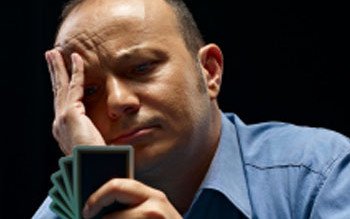Gambling
Compulsive Gambling
Compulsive gambling, is a type of impulse-control disorder with an uncontrollable urge to keep gambling characterized by many difficulties in limiting money and/or time spent on gambling which leads to adverse consequences for the gambler, others, or for the community.
Evidence indicates that pathological gambling is an addiction similar to chemical addiction. Monetary reward in gambling experiment produces brain activation very similar to that observed in drug addicts when they receiving an infusion of the drug.
Problem gambling is often associated with increased suicidal ideation and attempts. A gambler who does not receive treatment for pathological gambling may contemplate suicide during the desperation phase may .
It is a challenge to treat compulsive gambling partly because most people have a hard time admitting they have a problem. However, once the person acknowledges that he is a compulsive gambler treatment helps him regain a sense of control — and may even help heal damaged relationships or finances.
Some medications that have been found useful in treating substance abuse, also help treat compulsive gambling. Psychological treatments, such as behavior therapy or cognitive behavioral therapy, may be beneficial for compulsive gambling. They help identify unhealthy, irrational and negative beliefs and replace them with healthy, positive ones. and develop skills to reduce the urge to gamble.

Symptoms:
The person
- Gains a thrill from taking big gambling risks
- Takes increasingly bigger gambling risks
- Is preoccupied with gambling
- Devotes more and more time and energy to gambling pursuits
- Is restless or irritable when attempting to cut down or stop gambling
- Conceals gambling from family or health professionals
- Resorts to theft or fraud to get gambling money
- Uses gambling to escape problems or feelings of helplessness, guilt or depression
- Takes time from work or family life to gamble
- Feels guilty or remorseful after gambling
- Borrows or steals money to gamble
- Lies to hide gambling
- Jeopardizes a significant relationship, job, or educational or career opportunity because of gambling
